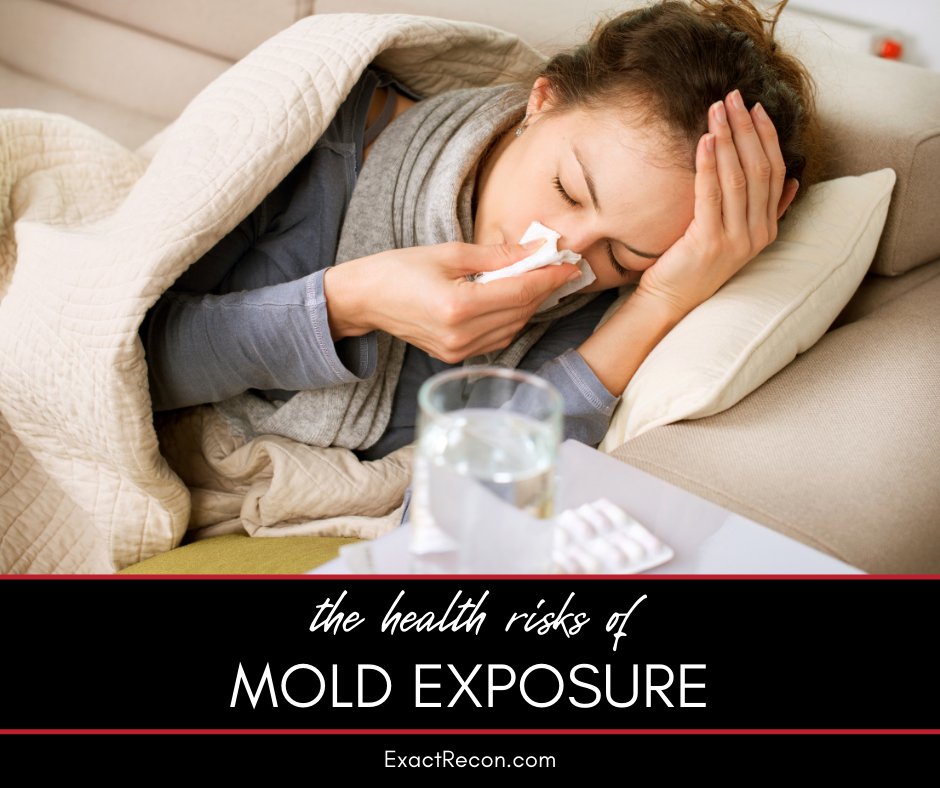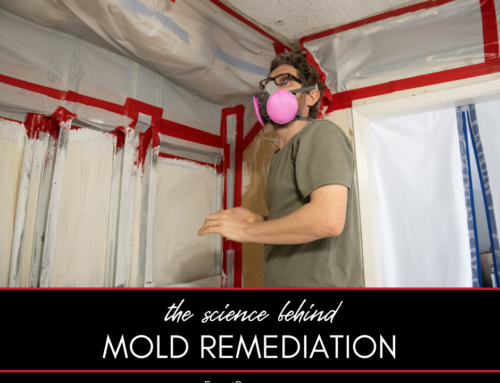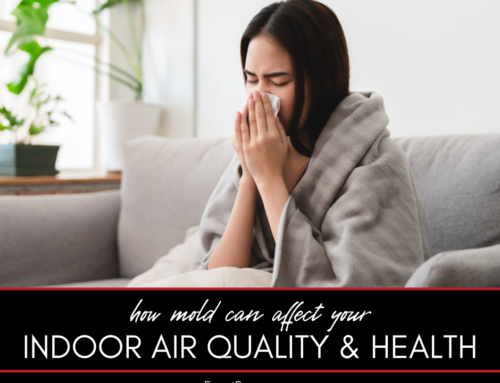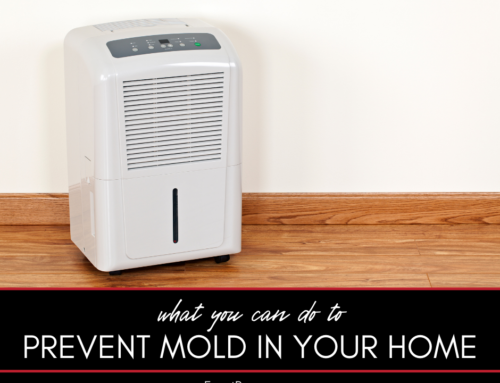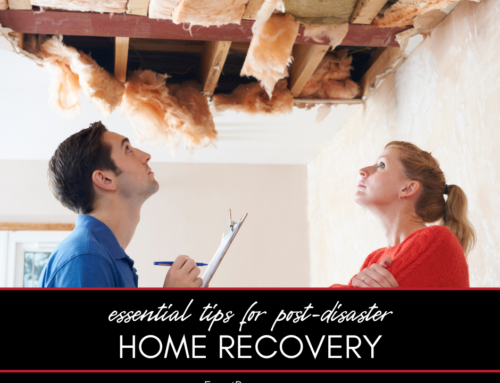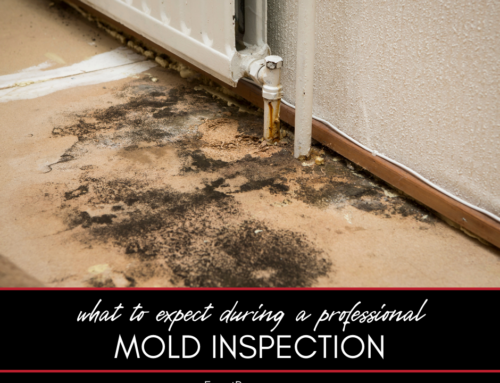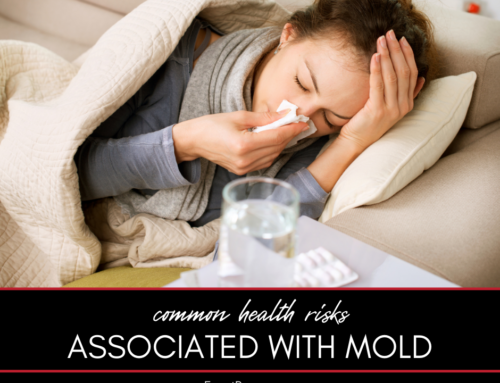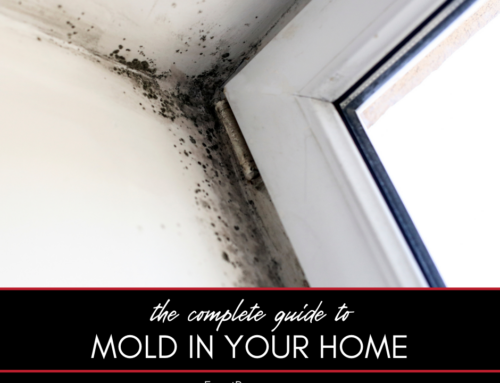Mold is more than just an unsightly nuisance; it’s a potential health hazard. Often lurking in damp corners or hidden behind walls, mold can have serious implications for those living in affected homes. In places like Jackson and Ann Arbor, Michigan, where humidity can be high, mold growth can be a common issue. At Exact Recon, we’ve seen firsthand the impact mold can have on health and well-being. Let’s delve into the health risks associated with mold exposure and why it’s essential to address it promptly.
The Health Risks of Mold Exposure
Mold, a type of fungus, thrives in moist environments and can quickly colonize areas with water damage. While mold is a natural part of our environment, an overabundance inside homes can lead to various health concerns. This guide will provide an in-depth look at the health risks posed by mold exposure.
This guide covers:
- Respiratory issues
- Allergic reactions
- Immune system suppression
- Skin problems
- Neurological effects
Here’s a closer look at each.
Respiratory Issues
Breathing in mold spores can have a significant impact on the respiratory system. When mold grows in damp or humid environments, it releases tiny spores into the air. When these spores are inhaled, they can irritate the lungs and airways. People might experience persistent coughing, a tight feeling in the chest, wheezing, or difficulty in breathing. For individuals with pre-existing respiratory conditions like asthma or chronic bronchitis, mold exposure can exacerbate their symptoms, leading to more frequent or severe asthma attacks. Even those without any prior respiratory conditions can experience discomfort and irritation in their airways due to mold exposure.
Allergic Reactions
Mold is a known allergen, and many people have sensitivities or allergies to it. When someone allergic to mold comes into contact with it, their immune system reacts, thinking it’s facing a harmful invader. This reaction can lead to a host of symptoms. Some might experience sneezing fits, an itchy or runny nose, or redness and watering of the eyes. For others, the reaction might manifest on the skin, with hives or rashes. In extreme cases, mold exposure can trigger a severe allergic reaction known as anaphylaxis. This is a medical emergency characterized by difficulty breathing, a rapid drop in blood pressure, and loss of consciousness.
Immune System Suppression
Mold doesn’t just cause immediate symptoms; its effects can be long-lasting and insidious. Continuous exposure to mold can weaken the immune system over time. A suppressed immune system means the body is less efficient at fighting off infections, leading to increased vulnerability to viruses, bacteria, and other pathogens. This is particularly concerning for individuals whose immune systems are already compromised, such as the elderly, young children, or those battling chronic illnesses. For them, mold exposure can lead to frequent illnesses or prolonged recovery times.
Skin Problems
The skin is our body’s first line of defense against external threats. However, when it comes into direct contact with mold, it can react adversely. Mold spores or fragments can cause the skin to become irritated, leading to redness, itching, or even blisters. In some cases, prolonged contact can result in dermatitis, a condition where the skin becomes inflamed, itchy, and flaky. It’s always advisable to avoid touching moldy surfaces directly and to wear protective gloves if handling mold-contaminated items.
Neurological Effects
Mold isn’t just a physical irritant; it can also have effects on the brain and nervous system. Certain types of molds produce toxic compounds called mycotoxins. When people are exposed to high levels of these toxins, either through inhalation or ingestion, they can experience neurological symptoms. These might start as frequent headaches or bouts of dizziness. Over time, and with continued exposure, individuals might face more severe symptoms such as memory lapses, difficulty concentrating, or other cognitive impairments. It’s crucial to address mold issues promptly to prevent prolonged exposure to these harmful toxins.
FAQ About the Health Implications of Mold Exposure
Here are some frequently asked questions about the health risks of mold exposure. If you don’t see the answers you’re looking for here, please call our office. We’re here to help.
How Can I Identify Mold in My Home?
Mold often appears as dark spots or patches and can have a musty odor. If you suspect mold growth, it’s best to consult a professional for assessment.
Can Mold Exposure Affect Pets?
Yes, pets can also experience health issues due to mold exposure, including respiratory problems and allergic reactions.
How Can I Prevent Mold Growth?
Ensure proper ventilation, fix leaks promptly, and keep humidity levels in your home below 60% to prevent mold growth.
Is All Mold Harmful?
While not all molds are toxic, any mold growth in the home can pose health risks, especially for those with allergies or respiratory conditions.
How Can I Safely Remove Mold?
For small areas, you can clean with soap and water. However, for larger infestations or if mold returns, it’s best to consult a professional remediation service like Exact Recon.
Mold exposure can have a range of health implications, from mild allergic reactions to severe respiratory and neurological issues. At Exact Recon, we emphasize the importance of addressing mold promptly to protect your health and the well-being of your loved ones.
Do You Need a Disaster Remediation Expert in Washtenaw County or Jackson County?
If your home has already been damaged, we can help. Check out our services and call Exact Recon for your free disaster remediation quote today. We offer:

